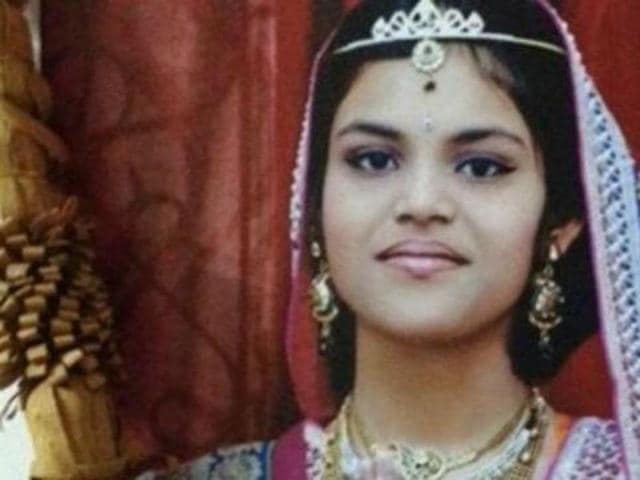Jain girl death row: ‘Parents are not criminals, they didn’t want her to die’
Despite the death of a 13-year-old girl in Hyderabad after fasting for 68 consecutive days on October 3, Jain community leaders insist that there should be no curb on their rituals.

The police have registered a case against her parents, charging them with culpable homicide not amounting to murder. But the probe into the death has ground to a halt in the absence of physical clues or a post-mortem report.
Jain groups have also demanded scrapping the case. In a representation to Hyderabad Police commissioner M Mahender Reddy a few days ago, several Jain associations under the banner of Sri Jain Seva Sangh said section 304 (2) of the IPC – culpable homicide -- was not applicable to Aradhana’s parents as they had not forced her to take up fasting and had no intention of killing her
In May 2009, the Mumbai police took away a nine-year-old boy Jain who was to be ordained as a monk. The child had been brought from Gujarat for a ‘Bal Diksha’ ceremony by a Chinchpokli-based trust. His parents had said he wanted to become a monk. As the community prepared for a grand ceremony to ordain the child monk, the police, who were tipped off by a child rights groups, placed the boy in a rescue home and the case was heard by the Child Welfare Committee, a judicial body.
Read: Parents of girl who died after fast are not criminals: Jain scholars
When the case was argued in the courts, Jains said their scriptures allowed the ordination of children above eight. Another custom that has had problems with the law is Santhara - also known as sallekhana – a practice in which a person gives up food and water with the intention of preparing for death. Some old people have chosen to die this way though there are allegations that some were coerced to do it.
In August 2015, the Supreme Court stayed a Rajasthan high court order declaring Santhara as a criminal offence and issued a notice to the Centre and the Rajasthan government.
The police action in Hyderabad and Mumbai was opposed by Jain religious leaders who said this was interference in their religious affairs. But is it? As this newspaper reported, the right to freedom of religion mentioned in the country’s Constitution is subject to conditions of public order, morality and health and is subordinate to all other fundamental rights.
What this means is that the right to freedom of religion is not absolute; it is a restricted right and certainly doesn’t include the right to take one’s life, particularly that of a child.
Read: Jain girl death row: Religion can’t be a licence to deny right to life
A section of Jains feels their religious practices are targeted because they are a minuscule group. “The religious practices of peaceful groups are under scrutiny,” said Lalit Nahta who edits a periodical on community affairs.
“Jains will like to follow all their religious tenets but others are making this an issue. There is nothing wrong in fasting and we have been doing it for hundreds of years. There has been just one incident (the death of the Hyderabad child).”
Why are so many religious sacraments in Jainism, one of the world’s most ancient religions, facing legal hindrances? Jain scholars say that practices like Bal Diksha are not universal to all Jain sects.
“There are groups which say children should be educated to a certain age and diksha is a choice that can be made later in life. As far as fasting is concerned it should be done as per the capacity of the body,” said Bipin Doshi, a teacher of Jain philosophy at University of Mumbai.
“The child (who died) had done this kind of extreme fasting in the past. The parents would not have known that the child will die. This is a matter of faith and it is difficult to reconcile faith with logic,” said Doshi.
Doshi said that criminal action against the parents is wrong.
Read: Banned Santhara ritual is not similar to suicide, say Jains
“As a teacher of Jain philosophy I will like to tell people that this kind of fasting can be hazardous for a young child like this, but you cannot go for legal action; the parents did not want to kill the child,” said Doshi who thinks that the criminal case against the parents will not stand in court.
Doshi said scholars and leaders should ask parents to not allow their children to volunteer for such extreme kinds of fasting. “The advice will work if it comes from the community.”





